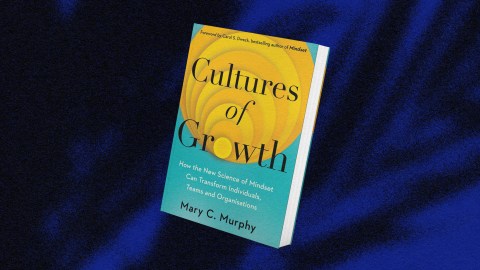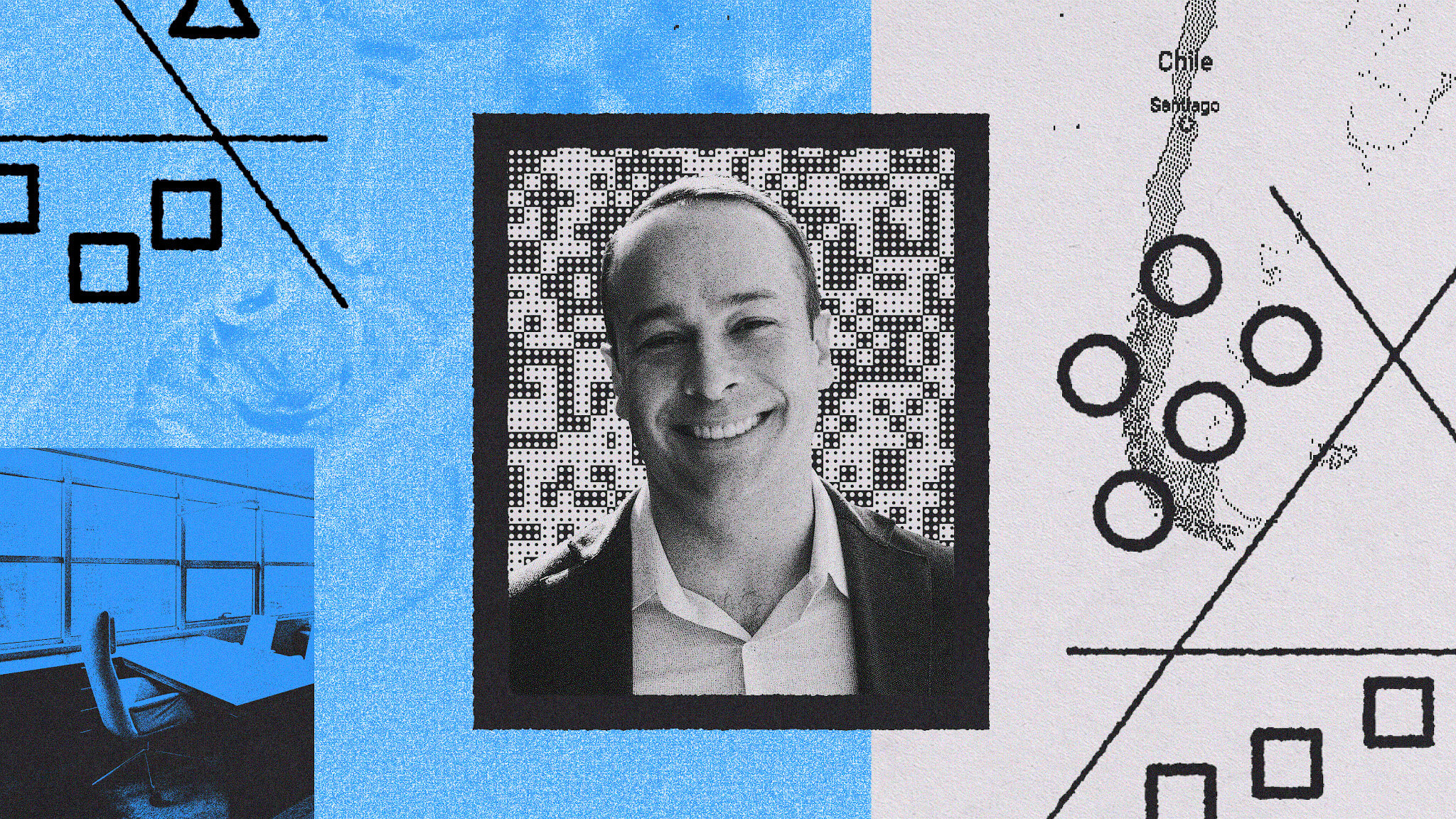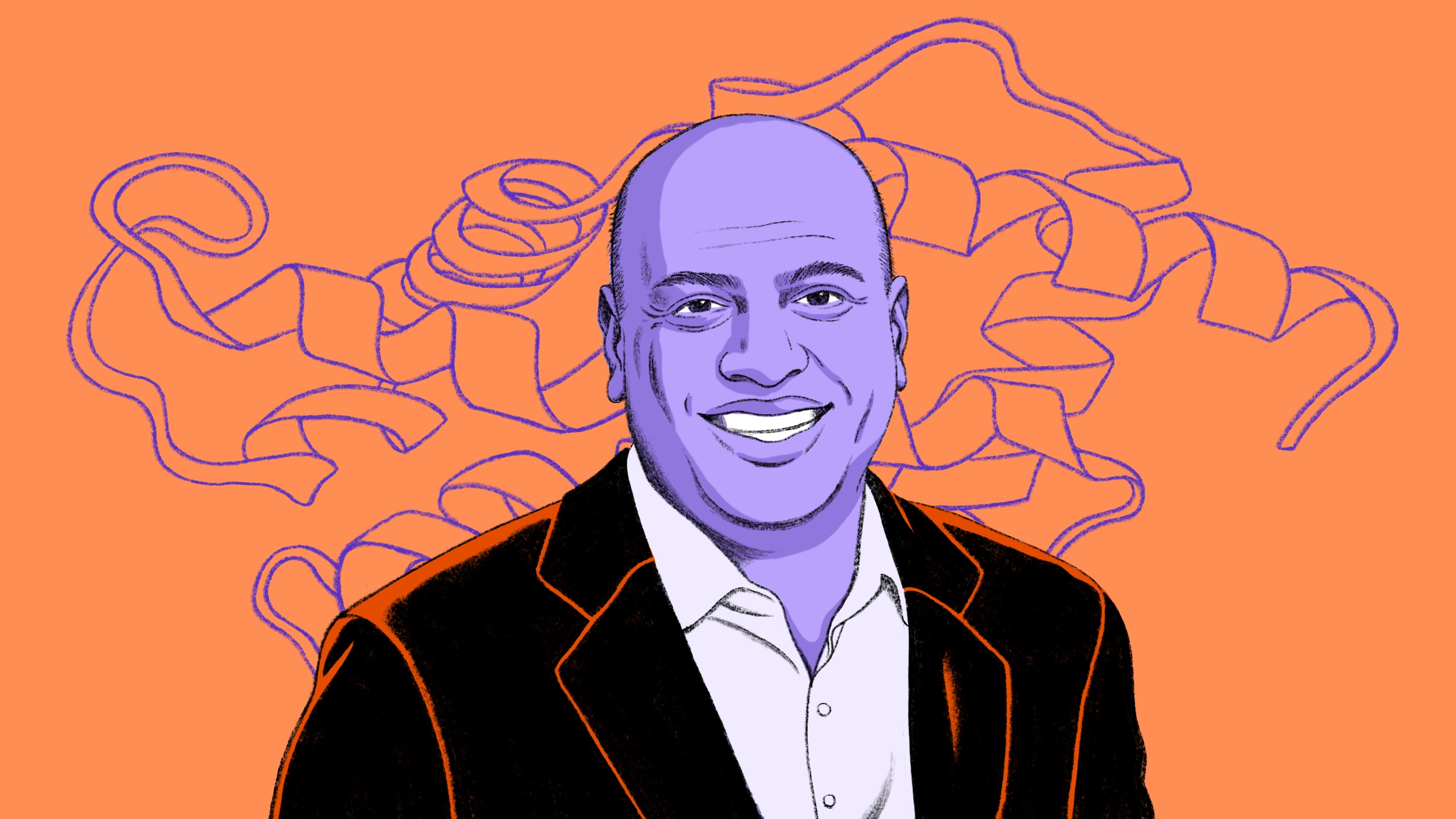“Cultures of growth”: How small changes can build stronger, more successful teams

- Like individuals, group cultures exhibit “growth mindsets” or “fixed mindsets.”
- “Cultures of growth” promote learning, innovation, healthy risk-taking, and ethical decision-making.
- Managers can begin nurturing a culture of growth by understanding their team’s “mindset triggers” and tweaking how they deliver feedback.
In 2011, software engineer and satirist Manu Cornet posted a cartoon on his blog mocking Microsoft’s culture of cutthroat competition under CEO Steve Ballmer. The cartoon depicted the company’s org chart as a collection of guns, each one pointing at another employee. It became a viral sensation.
Enter Satya Nadella. When Nadella became Microsoft’s CEO in 2014, he restructured the company’s culture around the psychological concept of a “growth mindset.” He built it into strategy decisions, resource allocations, and performance evaluations. He even revised the company’s mission statement to include “empower every person and every organization on the planet to achieve more.”
The tactic paid off. In January 2024, Microsoft recovered the ground it lost during Ballmer’s tenure to become the most valuable publicly traded company worldwide.

According to Mary C. Murphy, a professor of psychological and brain sciences at Indiana University and the CEO of the focused research organization Equity Accelerator, Nadell’s story is an example of how “cultures of growth” can help teams and organizations succeed.
Big Think recently spoke with Murphy to discuss her new book, Cultures of Growth. During the conversation, we dive into the research on growth mindsets, consider how “cultures of genius” hold organizations back, and learn what managers and leaders can do to start fostering a culture of growth within their teams.
Big Think: What led you to writing Cultures of Growth?
Murphy: I came to write the book after studying these ideas for over 15 years with my students, postdocs, and collaborators. We had amassed a large body of research and done a lot of work in the field with companies looking at how managers’ and leaders’ mindsets shape the culture — and how that mindset culture influences the people inside.
Big Think: Can you give us a short history of the concepts of “growth mindsets” and “fixed mindsets”?
Murphy: The idea was first developed by Carol Dweck in the 1980s. Carol identified that we had these beliefs about intelligence, ability, and talent, and she characterized them as fixed and growth mindsets.
A fixed mindset holds that intelligence, talent, and ability are relatively static traits. You’re born with a certain amount, and there’s not much that you can do about it. You’re smart or you’re not. You’re good at math, or you’re an artist.
A growth mindset, on the other hand, holds that intelligence, talent, and ability are potentials that exist within us, and we can grow them substantially throughout our lifetime with things like the right support, help from others, persisting through challenges, and so on.
This work has shown that when we embody more of a growth mindset, we see all kinds of positive outcomes for ourselves. We are more likely to take on challenges. We’re able to learn from mistakes. We’re more likely to want to try new things and are not so worried about taking risks in our intellectual development.
Big Think: What are some common misunderstandings regarding these mindsets?
Murphy: A big misunderstanding is that you either have a fixed mindset or you have a growth mindset. [But that’s] a very fixed way of thinking about mindset, ironically.
Mindset actually exists on a continuum, and some powerful studies show how easily we can move between our fixed and growth mindset based on certain situations — what I call “mindset triggers” in the book.
Mindset actually exists on a continuum, and some powerful studies show how easily we can move between our fixed and growth mindset based on certain situations.
Mary C Murphy
We’ve also been studying [how] whole teams or organizations have these mindset cultures — what I call “cultures of genius” and “cultures of growth.”
Although a culture of genius sounds good, it actually relates to the fixed mindset. It’s the belief that some people inherently have more capabilities due to superior intelligence, abilities, and talents. [As a result,] all of a team or organization’s power and resources become concentrated on them.
A culture of growth has the growth mindset belief at its core. These teams and organizations believe that everybody has potential that can be grown given the right support, and they have structures in place to make it real, such as programs for their development. Everyone can contribute.
And I want to say that there is a culture continuum [between genius and growth], too.
Why cultures of genius pay a high cost
Big Think: How do cultures develop along this genius-growth continuum?
Murphy: There’s a big debate in the organizational literature as to what culture is. Is culture what we say we value? In that case, you can say culture is [defined by] mission statements and the messages of leaders when they’re first creating the organization.
I come down on the other side: Culture isn’t what we say; it’s what we do and how we interact with each other.
The question then becomes: What are those daily situations and interactions that comprise and shape our culture? How do we support our people? To what extent can we give people stretch assignments, and they’ll be willing to take those on? How do we lift up the contributions of individuals so as not to create internal competition but allow everybody on the team to learn?
Big Think: In your book, you point out that cultures of genius are associated with greater lapses of integrity and ethics. Why is that?
Murphy: Think about the poster-child companies for the culture of genius: Theranos under Elizabeth Holmes, WeWork under Adam Neumann, Uber under its previous leadership, and more recently FTX under Sam Bankman-Fried. [These] geniuses set the strategy and oftentimes pitted teams against each other to achieve their goals.
We see it over and over in cultures of genius. They are rife with internal competition. They are proven-performance environments, but you’re only as good as your last performance. It also means that people see their team members not as collaborators but as competitors.
People [in these environments] take all kinds of small, unethical behaviors to maintain their status and reputation. Those build up over time to large-scale ethical breaches that we see in many organizations with strong cultures of genius.
Cultures of growth, on the other hand, are very different. Mistakes are normalized. In fact, there’s an understanding that a certain amount of mistake-making is required to learn, grow, and develop as an organization. Otherwise, we’re not pushing ourselves forward.

Big Think: Some may point to figures like Elon Musk, Mark Zuckerberg, and Steve Jobs as successful cultures of genius. What would you say to such a counterexample?
Murphy: My argument is not that there’s no way to be successful as a culture of genius. [However], from small-scale companies all the way up to Fortune 1000 companies, we find that cultures of genius are like flying a plane into a headwind. The expenditures are going to be bigger. You’re going to be delayed in what you’re doing. Success is more tenuous.
So, it’s not that you can’t be successful but the costs are very high — both to individuals within the organization and also the bottom line.
Big Think: Can you provide an example of a company that embodies the culture of growth?
Murphy: Microsoft is the one that everyone likes to point to given their success.
Another example is the McBride sisters, Robin and Andréa. They are Black women who went into the wine business. The wine industry is very much controlled by these old legacies of families, organizations, and networks of distribution: Talk about a culture of genius. Breaking in is no small feat.
What they did was nurture a culture of growth around themselves. They then took those strategies and created a new base of consumers who were largely ignored by other winemakers. They designed new collaborations and networks for distribution. And now, they are the largest Black-owned wine company in the United States, and they continue to create cultures of growth for others.
How to nurture a culture of growth
Big Think: What advice would you give managers or leaders looking to promote a culture of growth?
Murphy: If a manager or leader wants to create a microculture of growth in their own team, the first thing to do, ironically, is get to know the fixed mindset. You have to acknowledge and be aware of those times when you move to a fixed mindset. You also have to understand the times when the people you’re supporting may move into their fixed mindset.
[For instance], how do we ask people to take on tasks they might not have done before? That’s a high-effort situation, and for many people, it’ll be a fixed-mindset trigger because they think that if they have to work hard, it means they don’t have it. If you learn to recognize mindset triggers, you can set up the situation toward growth.
Doing things slightly differently can communicate and create stronger cultures of growth.
Another example is how we praise others. [Typically], we say, “Great job.” Everybody claps, and it’s great.
Obviously, we want people to feel good, so say “Great job,” but then be specific. Provide feedback about what they did well and what they should repeat in the future. Say, “I really love how at the end of that pitch, you brought it back to the founding story of the client.” Or “I love how you presented that data. It was really understandable.”
This helps everyone on the team, too. If everyone will eventually give some form of this pitch, then communicating the kinds of things we think are wonderful allows everyone to repeat them and build from that learning.
We are all culture creators, regardless of our role.
Mary C. Murphy
Big Think: Is there a message you would like to leave our readers with?
Murphy: The message I want people to hear is that we are all culture creators, regardless of our role. We all have the power to shape our one-on-one interactions — whether that’s in the workplace, at home, with our friends, or in our peer groups. There are so many cultures we interact with, and we have the power to shape them all.
I would also say get to know your mindset triggers. Look at everything through the lens of learning, and you’ll be able to create cultures of growth that are more productive, more successful, and where everybody thrives and wants to be. That’s something, I think, we can all aspire to.





